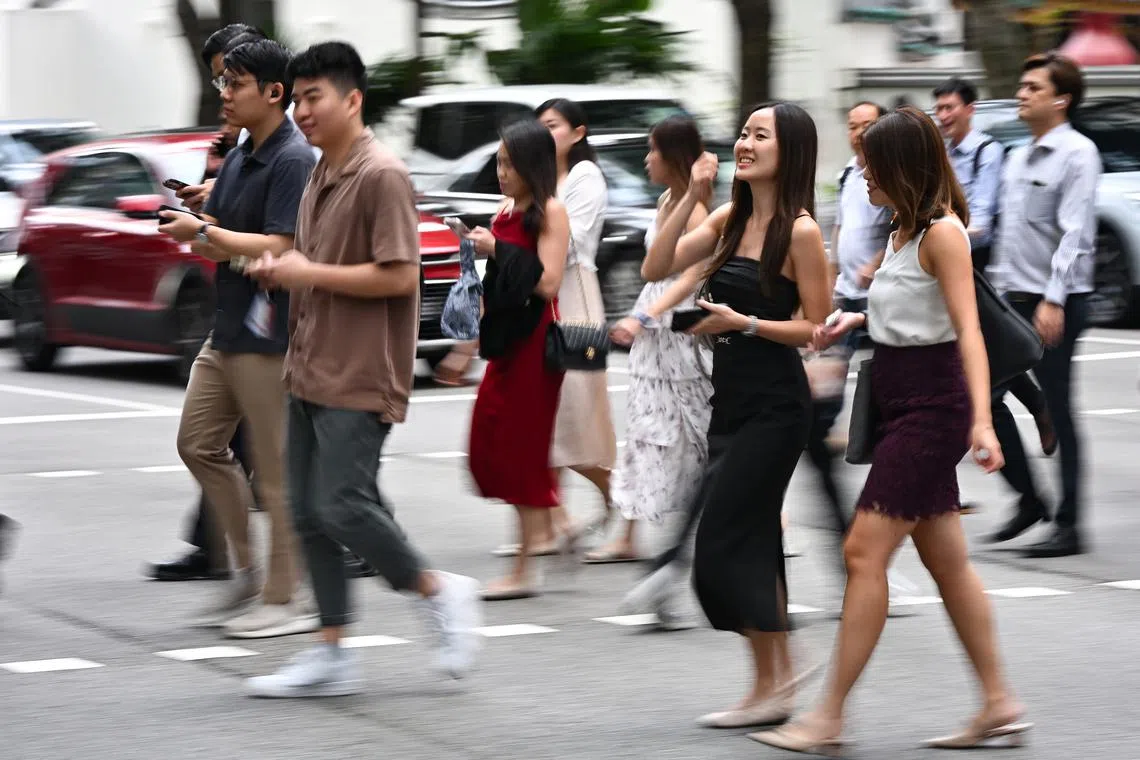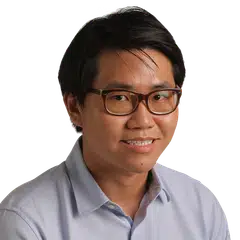63% of resident PMET growth from 2014 to 2024 from local-born Singaporeans: Tan See Leng
Sign up now: Get ST's newsletters delivered to your inbox

Manpower Minister Tan See Leng was responding to questions from NCMP Leong Mun Wai, who is among 22 MPs who spoke during the debate on the ministry's budget.
ST PHOTO: LIM YAOHUI
Follow topic:
SINGAPORE – Locally born Singapore citizens made up the bulk, or 63 per cent, of the growth in the number of residents with professional, managerial, executive or technical (PMET) jobs from 2014 to 2024.
Disclosing the figure in Parliament on March 7, Minister for Manpower Tan See Leng said that many naturalised Singaporeans and permanent residents who count towards the overall figure of 382,000 in that period are married to local-born Singaporeans as well.
“We should not keep harping on an us-versus-them mentality because Singapore is a largely immigrant nation. We are all here because we love this country,” Dr Tan added in his reply to questions from Non-Constituency MP Leong Mun Wai.
Dr Tan was speaking during the debate on the Ministry of Manpower’s budget, which lasted for close to five hours over two days starting on March 6, with 22 MPs rising to speak.
In the latest exchange, Mr Leong had asked about the displacement of existing resident PMETs by work pass holders who took up permanent residency.
Though Dr Tan expressed openness to exploring other statistics that could clarify the issue, he also said Mr Leong had been persistently harping on the division between foreign-born Singapore citizens and locally born Singapore citizens.
“My father, and I’m pretty sure Mr Leong’s father also, were not local-born Singapore citizens – and I benefited from here, just as (Mr Leong) has. We both want to do our best to serve our country.”
According to Mr Leong’s personal website, his father arrived in Singapore from Guangdong province in 1949.
Mr Leong also asked about the prevalence of and reasons for underemployment here, to which Dr Tan said that time-related underemployment, which refers to individuals who are working part-time but willing and able to engage in additional work, remains low and stable.
Dr Tan had said in a speech a day earlier that the figure averaged 3.1 per cent over the past decade, with a low of 2.3 per cent in 2024.
Meanwhile, Minister for National Development Desmond Lee fielded a question about housing affordability and cost of living in relation to wage growth from Mr Leong separately.
In another exchange, labour MP Desmond Choo (Tampines GRC) sought clarification from Dr Tan on the impact of the maximum employment age of work permit holders and the increase to the S Pass qualifying salary on the local workforce.
The last of a three-step increase to the pass’ qualifying salary and levy
The maximum employment age of work permit holders will also be raised from 60 to 63
In his response to Mr Choo, Dr Tan reiterated that the S Pass qualifying salary is pegged to what the top one-third of local associate professionals and technicians minimally earn.
“It does not lead market wages but it’s actually adjusted in line with what is the prevailing wage.”
As for the increased maximum age, Dr Tan said the change is meant to give firms the option to retain seasoned migrant workers relative to the trade-offs, such as higher insurance costs that may be payable.
Workers’ Party MP Jamus Lim (Sengkang GRC) also asked if the Employment Pass qualifying salary would be able to protect local PMETs from being out-competed by foreign professionals who could accept a lower gross income due to not needing to make Central Provident Fund contributions that locals do.
To this, Dr Tan said the labour market in Singapore remains tight and referred Associate Professor Lim to the growth in PMET numbers.
“My personal view is that, I think (Prof Lim) looks at it from a fairly theoretical and academic viewpoint.”
In summing up the debate, Dr Tan said that Mr Leong had refused to accept repeated explanations on labour issues which had been aired in previous sittings.
He quoted in Cantonese the 2004 Hong Kong movie Blood Brothers that starred Andy Lau and Jacky Cheung in a quip that drew guffaws in the House.
“Even if I’d said it, you wouldn’t listen to it. Even if you’d heard me, you wouldn’t understand. Even if you understood, you wouldn’t do it. Even if you did it, you would do it wrongly. Even if you did wrong, you wouldn’t own up to it. Even if you owned up, you wouldn’t correct yourself. Even if you corrected yourself, you did so begrudgingly.
“Then what am I supposed to do?”


